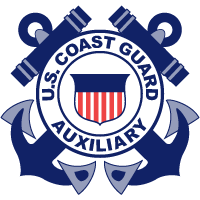Boating Safety Information
Each year hundreds of lives are lost, thousands are injured and millions of dollars of property damage occurs because of preventable recreational boating accidents on U.S. waterways. Too often pleasure outings turn tragic. You as a boat operator, passenger, or concerned individual can make a difference. By taking an approved boating course you will heighten your awareness to safe boating. You will learn the basics of what you need to safely and comfortably go on the water with your boat.
Courses cover many aspects of boating safety, from boat handling to reading the weather, and from a "Water 'N Kids" class to courses for boaters who want to learn electronic navigation skills. The most popular basic courses generally have from 6 to 13 lessons to provide a foundation of operational and safety instruction. Not only will a Safe Boating Course give you valuable knowledge, but it will also save you money with your insurance company. Taking a Safe Boating Course will allow you to take advantage of the knowledgeable boater discount rate plan that most insurance providers carry. (Check with your insurance provider for participation)
Many boating safety courses are offered throughout the country, for all types of recreational boaters, and for boaters of all ages. Qualified volunteer organizations, such as the U.S. Coast Guard Auxiliary, U.S. Power Squadron, and others sponsor many courses, and many state boating agencies also provide classes. For more information on Safe Boating Courses here in the Mobile area CLICK HERE .
“Nearly 80% of all reported fatalities occurred on boats where the operator had not received boating safety instruction or taken a course” U.S. Coast Guard.
Boating Safety Resources
Why prepare a Float Plan? Why should you take the time to prepare a float plan? The answer is simple... there are just too many facts that need to be accurately remembered and ultimately conveyed in an emergency situation. Without a float plan you are counting on someone else, a friend, neighbor, or family member to remember detailed information that rescue personnel need in order to find you. Information that can make a difference in the outcome.
Who should prepare a float plan? Don't think for a minute that this is a device only for those with big expensive boats. The Float Plan is equally effective for the owner of a 10 foot kayak or flat-bottom skiff as it is for a 48-foot express cruiser, or a 90 foot sport-fishing vessel or luxury yacht. So, what kind of boaters prepare float plans?
- Kayakers
- Sport fisherman
- Hunters
- Jet Skiers
- Water skiers
- Family day cruisers
- Private charter boat services
- Canoeists
- Rowers
- Rafters
- Sail boaters
- Power boaters
Typically the Skipper of the vessel is the individual who prepares the Float Plan. However, any member of the crew can be assigned the preparation and filing duty. If you are a crew member, we strongly recommend that you coordinate the preparation and filing of the Float Plan with your Skipper. The Float Plan is the world's only Lifesaving Device on Paper and the "Millennium Edition" Float Plan™ represents the state-of-the-art in float plan design. Its logical organization and exclusive one-page design make it extremely easy to prepare and use. But the plan by itself is not enough. What makes the float plan a complete and fully functional device is the Boating Emergency Guide™. This step-by-step guide assists the holder of your plan, who has a genuine concern for the safety or welfare of the people on board, in beginning the Search And Rescue process. The "Millennium Edition" Float Plan™ and Boating Emergency Guide™, together they are the World's only fully functional Lifesaving Device On Paper™. Get the Plan. Its free from America's Volunteer Lifesavers, the U.S. Coast Guard Auxiliary. Safety is simple, if you have a plan. Click on the “Get The Plan" for your fully downloadable copy.
Get The Plan
Being a responsible boater is not just driving your vessel safely. It is your responsibility as the owner or the operator that the vessel’s safety equipment is in good operational order. Things can go wrong on the water, with dangerous even fatal results. That’s why the U.S. Coast Guard recommends that you get a Vessel Safety Check (VSC) every year. Need another reason? A large number of major insurance providers offer discounts for boats that successfully pass a Vessel Safety Check!
Vessel Safety Check Website
